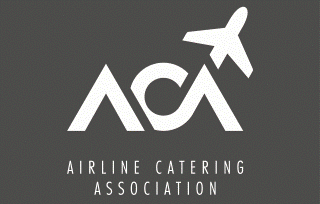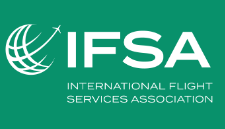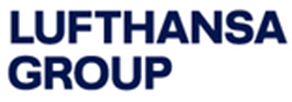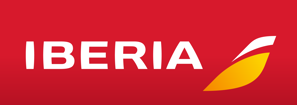
As a result of EU legislation, airlines experience a large difference in their ability to manage catering waste from flights within the EU and catering waste coming from outside the EU.
Catering waste from within the EU is efficiently processed, recycled and reused. Here airlinesdemonstrate the opportunities that a circular economy can offer, minimising residual waste and, as a result, reducing impacts and costs to society and the environment.
For catering waste generated on flights coming from outside the EU, the story is completely different. Current EU legislation (Regulation (EU) 1069/2009) classifies this as Category 1 (CAT1) International Catering Waste (ICW), which requires disposal by incineration or deep burial in an authorised landfill.Thereby EU legislation de facto inhibits reuse, recycling and biotreatment of ICW from outside the EU (1)In practice, almost everything is burnt, even unopened bottles of water, or buried when incineration is not possible, in spite of EU airlines and passengers having a strong desire and means to do more in terms of reuse and recycling.
While the Regulation is clear in its aim to avoid the spread of animal disease, which the sector fully supports, it does not appear to be risk-based and prevents airlines from segregating, recovering and/or recycling waste. In addition, no ICW guidance has been provided at EU level, which results indifferences in implementation and application across Member States (2).
In order to determine the potential risks to animal health posed by ICW, IATA commissioned a studyfrom a food safety and animal health consultancy and the key findings include:
- Animal disease outbreak: There is no evidence that ICW from airlines has caused an animal disease outbreak, even prior to the implementation of prescriptive legislation in force in many countries.
- Risk assessment: There is no evidence that quantitative risk assessments of animal disease outbreaks from ICW were undertaken prior to the implementation of legislation.
- Regulatory impact assessment: There is no evidence that regulatory impact assessments including airline industry consultations were undertaken prior to the implementation of ICW legislation. It is unclear if regulators are aware of the environmental, social and economic impacts of this legislation, including international implications.
- Milk and milk products: Milk and milk products served in-flight that have been subjected to heat treatment do not represent a risk to animal or human health, and there appears to be no scientific justification for them being classified as CAT1.
- Illegal import of meat: The report indicates that the concealed smuggling of meat products in passengers’ baggage represents a more significant risk to the introduction of animal disease than that posed by catering waste from international flights.
Due to the CAT1 Waste classification and the current state of legislation, the EU, European airlinesand international airlines flying into Europe are missing out on more sustainable and efficient waste management solutions. Moreover, the CAT1 classification hampers airlines from implementing the EU’s ambitions for a circular economy. For example, Directive (EU) 2019/904 encourages the replacement of single use plastics (SUP) with other materials. However, the circular economy benefits are undermined as CAT1 classification means alternative recyclable materials still need to be incinerated or landfilled and bio-based alternatives cannot be biotreated.
In line with the EU’s own better regulation principles, it is only appropriate to assess whether this nearly 13 year old Regulation is still fit for purpose and takes the EU’s targets for moving towards a fully circular economy properly into consideration.
Our Joint Recommendation
In the above context, the undersigned therefore:
- Strongly advise that the European Commission (EC) undertakes a quantitative risk assessment of ICW and its threat to animal health, as part of the Commission Work Program (CWP) and REFIT initiatives for 2023.
- The quantitative risk assessment result should be used as the basis for the revision of the ICW provisions of Regulation (EU) 1069/2009, so the aviation sector can make a positive contribution to the EU’s circular economy, and meet its own ambitions and passenger expectations on sustainability.
- While the risk assessment is carried out and Regulation (EU) 1069/2009 is under regulatory review, it is critical that, in the interim, EU Member States have access to harmonised guidance on the reuse and recycling of waste for international flights. The sector stands ready to contribute towards the drafting of this guidance.
The adoption of smarter International Catering Waste (ICW) regulation will result in less cabin waste, more material recovery, financial benefits and improved customer satisfaction whilst supporting policy-makers in maintaining high animal health status whilst contributing to the EU’s ambitious circular economy goals.
(1) The EU defines ‘International Catering Waste’ (ICW) as catering waste from means of transport ‘operating internationally’. Catering waste from outside the EU is always classified as Category 1 (CAT1) Waste. CAT1 Waste is a type of waste that has been classified as potentially dangerous to animal and/or plant health. All CAT1 Waste must be disposed of by incineration, pressure sterilisation or deep landfill burial.
(2) For example, Finnish authorities have made an exception to allow for the recycling of cups and containers which have held milk or honey as both substances were deemed harmless - see kansainvälinen ruokajäte.
For more information, please contact:
Corporate CommunicationsTel: +41 22 770 2967Email: corpcomms@iata.org
Notes for Editors:
- IATA (International Air Transport Association) represents some 290 airlines comprising 83% of global air traffic.
- You can follow us at twitter.com/iata for announcements, policy positions, and other useful industry information.








